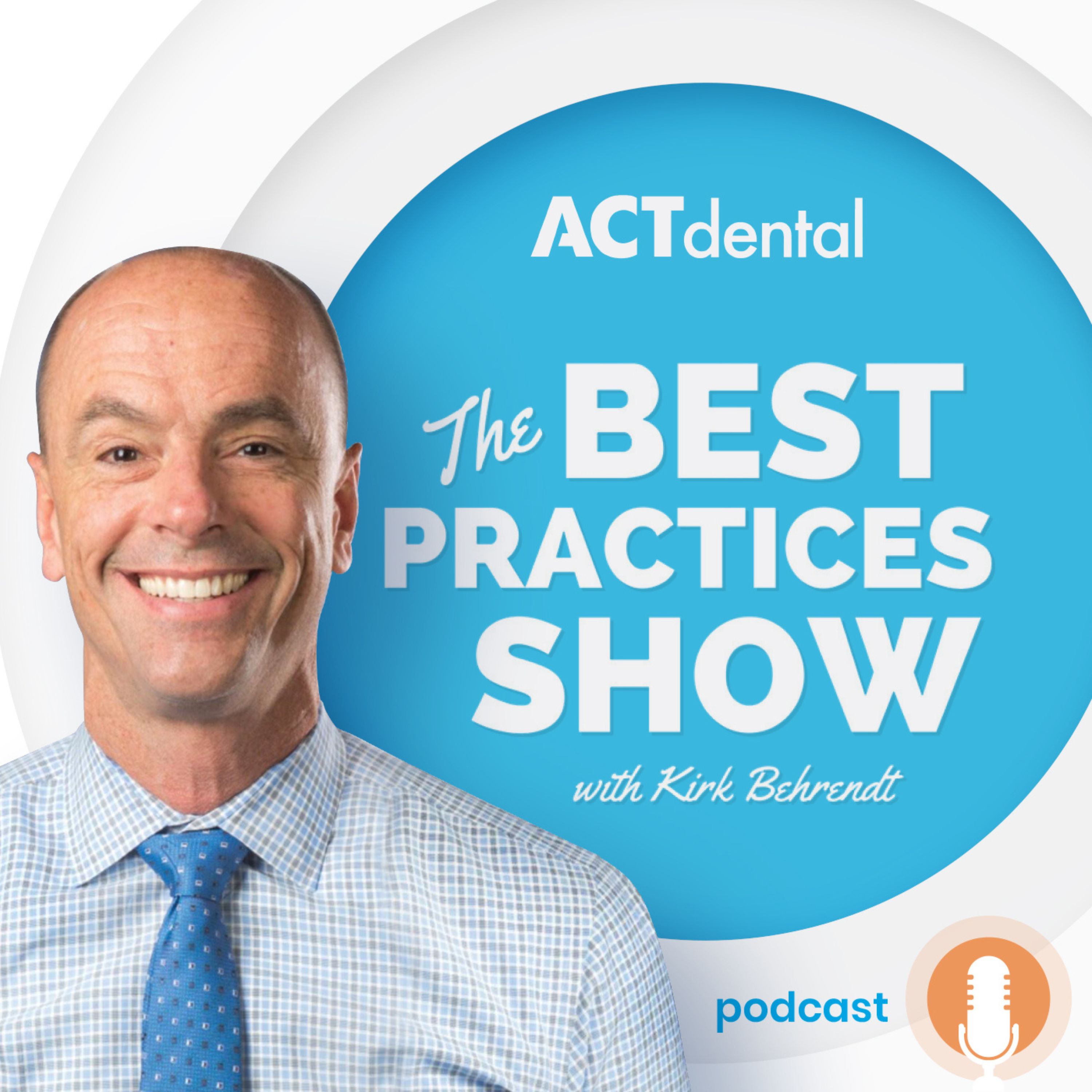Episode 14
14: One Word That Kills Every New Patient Phone Call - Laura Hatch
Laura Hatch is the founder and owner of Front Office Rocks a training resource that offers virtual training for front office staff. She is also the office manager for her husbands practice which is the second practice that they have built from scratch. Laura has commited years of study and hands on practice to understand the best way to manage an office and empower team members.
She is a leading authority on dental front office training. Her methods consist of established ideas and practical training that can be implemented in any office. In this show, we talk about how important that first patient phone call is when it comes to growing the practice. Laura also shares the one magic word that kills every new patient phone call, and other great advice for running an office that patients love.
You can find Laura here:
Show Notes
[02:16] Laura runs a day to day office in San Diego and is the owner of Front Office Rocks where she helps front office teams do better with all aspects of their jobs.
[02:51] Her website has over 180 training videos online. Laura determined that there was a need for this training after starting two practices from scratch and not really having readily available training resources.
[03:43] They also do client webinars twice a month that focus on an area of concern.
[04:17] The most important piece of technology in the dental office is the telephone. This is where the patients first impression is created.
[04:47] Patients don't judge you offices on dentistry. They judge on how nice the people are and how nice the office is.
[05:48] The magic word that kills every new patient phone call.
[06:06] How as an industry we need to be less insurance driven.
[06:24] Patients don't know what to ask when they come to an office. They ask if you take insurance and how much is a crown. A better question would be how good the doctor is or how much continuing education has the doctor taken.
[07:12] The magic word that kills patient calls is no.
[07:45] When a person hears no, they are trying to get off the phone after that.
[08:03] By answering with no, the call ends and you don't have a chance to actually answer the patients questions.
[09:13] Say yes or something positive to help the patient figure out what is best for them.
[09:33] Only talk about what you can do. You want to be there to help the patient. No is not a good customer service word.
[10:43] It's more important to ask questions and be curious than to have all of the answers.
[11:14] Get the patient talking to you and find out why they called.
[11:50] Yes, let me ask a few questions and I'll explain. Getting the person talking to you will set you apart from other dental offices.
[13:44] A lot of offices ask about insurance several times when a patient calls. Don't put insurance first as a priority.
[14:48] Laura doesn't say no to anything. She is not a fan of scripts. Calls need to be handled from the heart.
[17:08] Know why the patient or caller asks the question. If you can learn why, you can then begin to collaborate with the patient.
[18:12] There is so much going on at the front desk. The person at the front desk should be the sunshine pumper. Put on your happy receptionist hat and smile before answering the phone.
[20:56] People in front offices need to be trained well to answer the phone and not put people on hold.
[22:42] It's not good enough to just have your team watch the videos. You need to share with the team the reasons why they should do these things.
[23:49] The front office team needs more love. These are the people who get the patients in and gets them to pay.
[24:46] If you are better at your job up front it creates a cascade of success.
[25:26] The reception videos and role playing can prepare people to answer the phone. Ask why and get the story instead of saying no.
[26:11] How dentists often take a new employee and put them on the phones without training.
[26:56] The importance of not overthinking it, but instead learning why.
[27:12] Say that is an awesome question and why do you ask. This creates understanding to put the pieces of the puzzle together.
[27:55] When a patient asks to do monthly payments ask what they have in mind.
[28:45] Don't limit your ability to help patients.
[28:58] Regular training helps sharpen the saw and help people in the trenches remember why they do what they do.
[29:45] Use 3x5 cards to discuss the difficult questions. Document and figure it out collaboratively.
[30:33] Keep a call in log. Did they schedule, what was their question, what was the outcome. Always be learning and evolving.
[31:25] Not every call will convert, but starting with no decreases the chance.
[32:14] Use role playing when asking for referrals and reviews. It's easier to practice with someone that you are comfortable with.
[33:02] The doctor needs to communicate to the team what the purpose of the practice is. The entire team has a huge part. The receptionist is the first impression. The assistant spends more time with the patient.
[34:00] In dental school they don't teach communication, marketing, or business. The business is run by someone not trained and the team is often not trained. Get the help you need to have your team communicate and for everyone to be on the same page.
[36:17] Build rapport and then ask about insurance at the end of the call. The beginning call is about the relationship the end of the call is about the mechanics.
[38:18] Call back HMO people who didn't get scheduled and make sure they found a solution. Keep in mind that these are people. Even if they don’t convert, it could lead to a referral.
[40:50] The better you get the easier this stuff gets.
Links and Resources:
AADOM | American Association of Dental Office Management


